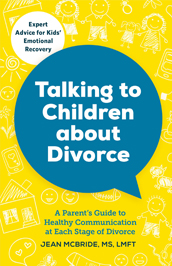Effective Co-Parenting Tips: How To Communicate, Compromise, And Focus On Your Child's Well-Being

- This blog contains affiliate links, which we may receive a commission for purchases. The decision is yours, whether or not you decide to buy.
Co-parenting is the shared parenting of children by their mother and father or parental figures who are not married or living together. Co-parents can be divorced or may have never married. They have no romantic involvement with each other. Co-parenting is also known as joint parenting.
How to be Good Co-Parents
Successful co-parenting benefits children in several ways. Research has found that children raised by cooperative co-parents have fewer behavioral issues and are closer to their fathers than those raised by adversarial co-parents or a single parent.
Here’s how to improve your chances of co-parenting success:
Let Go of the Past
You cannot effectively co-parent if you hold nothing but contempt for your ex. Vent your frustrations with friends, family, or a therapist, but never vent about the other parent to your children.
Focus on Your Child
Whatever happened in your past relationship doesn’t matter. Your present focus should be on what’s best for your child or children.
Communicate
Good co-parenting depends on effective communication.
Here are some tips:
Be Clear, Concise, and Respectful
Don’t criticize, blame, accuse, or threaten. Your communication should be businesslike and cooperative. Before you speak, consider how your words will come across. Will you sound unreasonable or like a bully?
Keep Texting Short
If you’re texting or emailing, keep it short, polite, and to the point. Set boundaries with your co-parent on the number of emails or texts that are appropriate in a day.
Communicate Directly
When you go through an intermediary like a stepparent, grandparent, or significant other, you risk miscommunication. You can also make your co-parent feel marginalized.
Actively Listen
The other part of communication is listening. To help your co-parent feel understood and heard, consider the following:
- Take turns when speaking
- Don’t interrupt
- Before you take your turn to speak, repeat in your own words what your co-parent said, and ask if you understood it correctly. If not, ask your co-parent to rephrase it.
Support Each
Other Recognize that the best parents are ones who work together. When you see the other parent do something you like, compliment them. Positive reinforcement is a key ingredient to good co-parenting. Likewise, follow through on mutually agreed-upon rules. If you’ve agreed on a set curfew, bedtime, or screen time limit, ensure your child follows those rules no matter which parent they’re with.
Plan for Holidays
Holidays and vacations can be a complex time for co-parents, but communication and planning can make these times easier.
Here are some tips:
- Give as much advance notice as possible
- Provide your co-parent with contact information of where you’ll be
- Keep children on their usual holiday routines. If you always spent Thanksgiving with your family and Christmas with your ex’s, keep the routine the same. Consistency is good for children
- When you can’t share holidays, try alternating them
- Try not to plan a holiday when the co-parent has custody of the children
Compromise
No parent sees eye-to-eye all the time, whether together or apart. When you can’t agree on an issue, try to find a solution you can both live with. For example, if you think it’s crucial for your child to attend church services when they’re with a non-religious co-parent, see if your co-parent would agree to drop the child off at the service and pick them up afterward. Or perhaps you can agree that the co-parent takes the child to services every other time.
The Takeaway
Co-parenting can be challenging, but with the right tools, you can co-parent effectively. Keys to effective co-parenting are good communication with your ex and a clear, thoughtfully designed parenting plan. Like all parenting, whether done as a unit or not, the focus should always be on what’s best for your children.
Mark Berry is a lifestyle blogger and paralegal who concentrates on healthcare, eco-friendly environment, Tips to get fluency in English, physical fitness, garden city personal injury lawyer, and self-development. He encourages readers to fight for their rights and overcome obstacles holding them back. He believes that every person can improve the quality of his/her life by thinking positively and making better choices.
PHOTO: SASHA KIM
You may also like
Books
Buy now from Amazon
- The Family Lawyer’s Guide to Separation and Divorce
- Talking to Children About Divorce
- Parenting Apart
Podcast
Kate Daly is co-founder of amicable and host of the The Divorce Podcast. Kate created The Divorce Podcast to discuss and demystify divorce, separation and co-parenting in the UK. In each episode, Kate is joined by experts in their field to explore divorce and separation from every angle.
Articles
- Getting Back With Your Ex: The Pros And Cons
- How To Be Great Parents Through Separation And Beyond
- Splitting Assets Fairly In Divorce
Parenting professionals
Related Posts
-

How to Create a Parenting Plan in the UK: Questions Parents Ask
-

Managing Children’s Screen Time in Shared Custody: A Practical Guide for UK Parents
-

Creating a Child-Centered Holiday Plan After Divorce: Minimising Stress and Maximising Joy
-

Successful Co-Parenting After Divorce: A Practical Guide for Separated Families
-

How to Support Your Children Through Divorce: 4 Practical Steps for Parents



.jpg)


